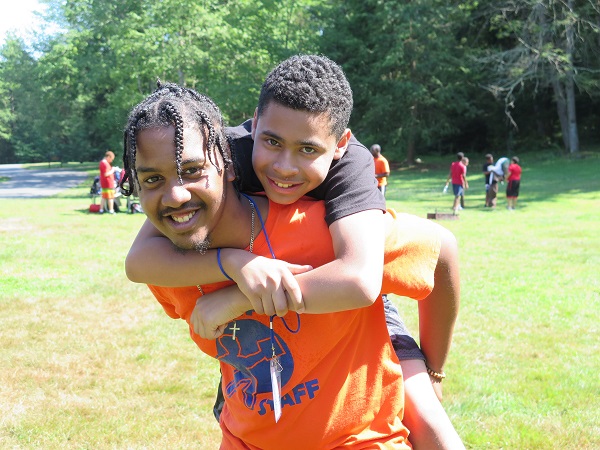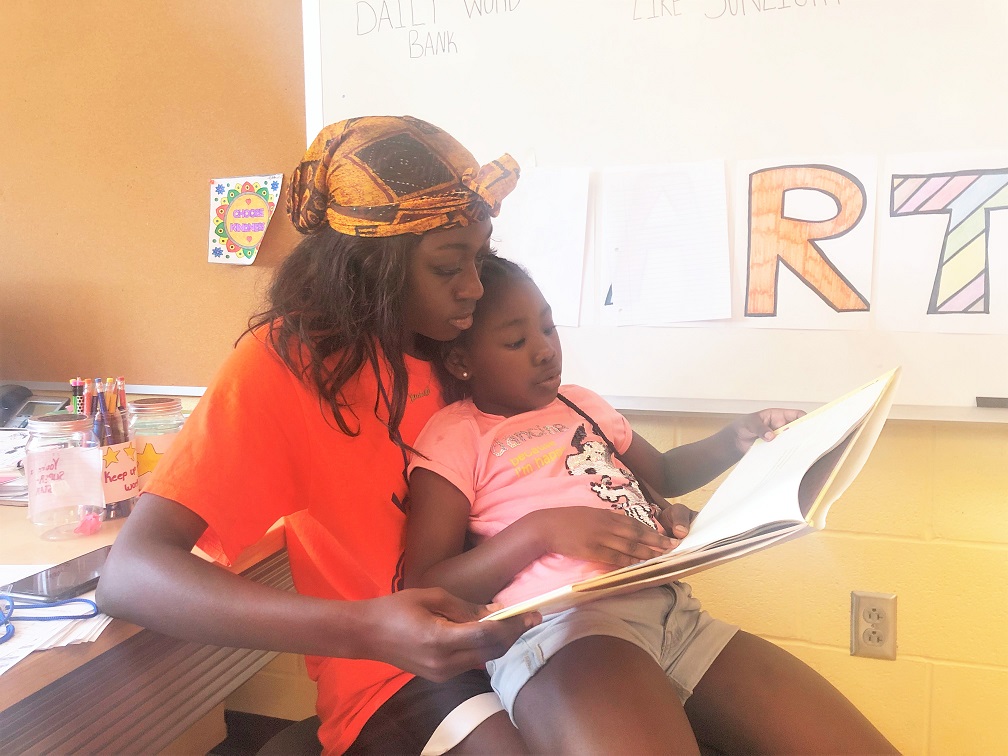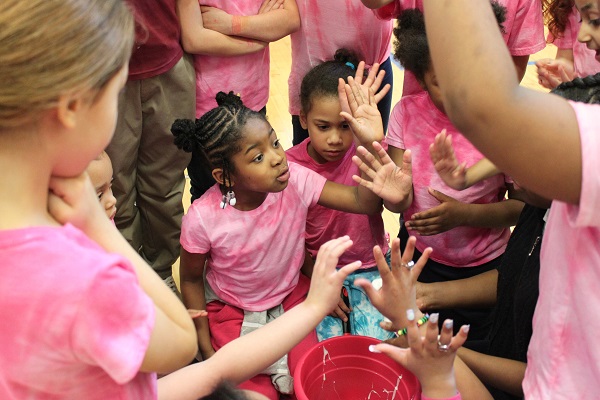
LEAP: Surrounding Kids With Approachable Neighborhood Role Models is Key to Success
LEAP stands for Leadership, Education & Athletics in Partnership. And having been in operation 25 plus years, we can see they’ve got it down: the formula for success. Kids come up through LEAP, first as young students, then as leaders, ready to mentor the next generation. It’s a beautiful system that really works.
For all these reasons, we were happy to offer this organization our help with one of our small grants. And we were glad we’d have a chance to tell you more about the work of this community organization. We spoke with Grant Writer Victoria Wang to learn all about LEAP:
Kars4Kids: Why is it important that LEAP participants “have strong, positive role models who look like them and have similar life experiences”?
Victoria Wang: LEAP kids are 95% African American and/or Hispanic, and 100% live in New Haven’s low-income neighborhoods. A lot of our kids don’t feel that things like college or a good career are possible because they don’t see examples of that in the older people around them. When they come to LEAP, they’re surrounded by role models who are either in college or on their way there – but who are also approachable and understand the unique challenges of growing up in their neighborhoods. Having close mentors like that can make a huge difference.
Kars4Kids: What is the ratio of children to staff in your various programs?
Victoria Wang: Six children to one counselor (6:1).
Kars4Kids: What percentage of LEAP children go on to leadership positions within the organization?
Victoria Wang: We had 60 high school counselors this summer – 21 of them started out as LEAP kids.
Kars4Kids: Are any of your permanent staff members graduates of LEAP?
Victoria Wang: A fourth of our full-time staff members were once LEAP kids or counselors. For example, our Chief of Staff, Yakeita Robinson, joined LEAP as a high-schooler and went on to become a Senior Counselor and then a program manager before taking on her current role.
Kars4Kids: Why is swimming such an integral part of your program?
Victoria Wang: African American children are over five times more likely to drown in a swimming pool than white children (click to read the CDC’s report). These deaths are entirely preventable – but a history of racial segregation has made pools and swimming lessons much harder for non-white, low-income families to access. At LEAP we teach over 350 children how to swim every year and also train some older students to become Red Cross-certified lifeguards, all free of charge. These are life-saving skills that can be passed on through generations, until we reach a day when no child drowns in a swimming pool.
Kars4Kids: STEM programs are very popular today in children’s programs, because of the way technology has become so important in our everyday lives and careers. LEAP, however, remains focused on literacy. Why have you stuck with literacy as your main goal for LEAP participants?
Victoria Wang: LEAP actually has two growing STEM programs, including a robust Learning to Code program. But ever since LEAP was founded 27 years ago, our biggest focus has always been literacy. Reading is a basic, fundamental skill everyone needs to succeed in any field. Reading is so important that a child’s literacy skills in third grade can predict whether they eventually graduate high school. But low-income children frequently underperform in reading compared to their wealthier peers, who can typically afford more books at home and summer enrichment programs where they practice reading outside of school. LEAP helps make up the difference with our free literacy program. Every summer, up to 500 LEAP kids read 17 books on average in our intensive curriculum. Each kid takes home another 5 books to keep.

Kars4Kids: Do adults play any role as mentors and tutors within LEAP?
Victoria Wang: Community members, many of them volunteers, teach unique activities to the kids at LEAP – everything from yoga to chess to spoken word poetry. For example, last year the Yale Peabody Museum staff brought LEAP kids on field trips to learn about natural science, and the UNH Women’s Field Hockey team taught classes in the LEAP gym. Volunteers also read aloud to hundreds of LEAP kids at our annual Read-In on the New Haven Green. Thanks to our volunteers, kids can explore new interests and just have fun being kids.

Kars4Kids: What’s next for LEAP?
Victoria Wang: We’ve always got new projects we’re working on! Right now we’re most excited about increasing the number of students in our leadership program for young teens, and improving our counselor training. We invest hugely in preparing all our young counselors to be effective mentors for children, which is especially important for our literacy program. We are now adding more counselor and staff training around cultural sensitivity, social-emotional learning, and best practices for teaching literacy.